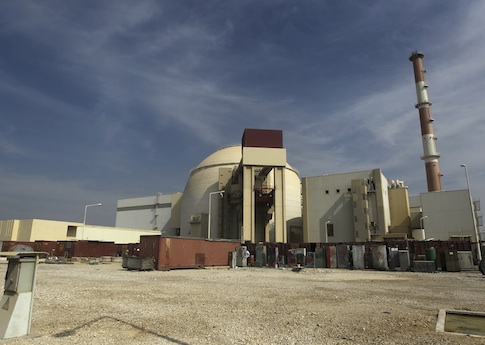Iranian negotiators abruptly ended nuclear talks with Western powers in Vienna on Friday just a day after the Obama administration announced tighter sanctions on Tehran.
Iran had threatened that new or tighter sanctions would nullify the recently reached Geneva interim deal, which is not yet in effect.
The Iranians abruptly "halted" the talks and left Vienna so that they could consult with higher-level officials about how to proceed with talks following the tighter sanctions, which were announced Thursday morning by the U.S. Treasury Department.
"The Iranian negotiators interrupted the talks with the [P5+1] for consultations in Tehran," a negotiator said on Thursday, according to Iran’s state-run Fars News Agency.
"America's move is against the spirit of the Geneva deal," Iranian chief negotiator Abbas Araqchi reportedly told the Iranian press. "We are evaluating the situation and will make the appropriate response."
Iranian and Western negotiators were in the middle of talks about ways to implement the interim agreement when the sanctions were announced, according to experts.
The "wild thing about today's action [is that] Treasury officials [are] negotiating terms of [the Joint Plan of Action] w/ Iran right now in Vienna," Foundation for Defense of Democracies expert Jonathan Schanzer tweeted on Thursday afternoon.
The White House told the Washington Free Beacon early Friday that it would address the development later in the day.
The interim accord reached in Geneva created the framework for a final deal that would halt portions of Iran’s contested uranium enrichment program for six months.
With final negotiations on the six-month freeze in limbo, it remains unclear when exactly Iran will begin halting its nuclear work.
Tehran would receive about $7 billion in sanctions relief under the accord and potentially be given the ability to continue its enrichment activities under a final deal.
The issue of new sanctions has been a particular irritant to the Iranians, who hope to reverse all of the West’s economic penalties.
Lawmakers on Capitol Hill had been trying to increase sanctions on Iran before the end of the year. However, the White House and its Democratic allies on Thursday successfully prevented the measure from coming to a vote.
The move was accompanied by Treasury’s sanctions announcement, which was viewed by experts as a middle ground meant to appease sanctions supporters in Congress.
"This was an action taken by the executive," FDD’s Schanzer told the Free Beacon on Friday. "What this shows is that the White House is trying to on the one hand put a halt on new sanctions to placate the Iranians but enforce existing sanctions to placate Congress and their constituents. It’s a fine line."
House lawmakers also launched a last minute bid late Thursday to redefine the parameters of the Geneva talks.
The new bipartisan resolution seeks to ensure that Iran fully dismantles its nuclear program and halts all weapons activities.
UPDATE 3:10 P.M.: The White House defended it's implementation of sanctions and directed reporters to question the Iranian delegation when asked about their departure from the nuke talks.
"In terms of what the Iranians have said about their delegation, I will simply point you to the delegation and to Iran for them to speak for their actions," White House Press Secretary Jay Carney told reporters during the daily briefing.
"But let's be clear, the designations announced yesterday were related to the enforcement of existing sanctions, and we have made clear all along that we would continue to enforce existing sanctions," Carney said. "We have been clear with Iran throughout this process that we will continue to enforce existing sanctions, which is consistent with what was done yesterday, the action taken yesterday."
However, Carney said that the administration continues to oppose new sanctions.
"Let's be clear also that we continue to oppose passage of new nuclear-related sanctions," Carney said.
